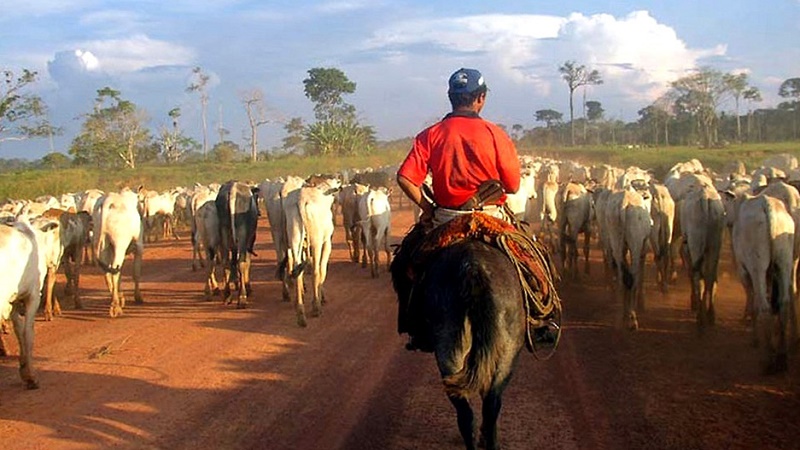Clearing space for cattle ranching is the biggest single driver of deforestation globally.
Yet only 26% of major beef buyers have any kind of environmental policy and just 16% have specific commitments to protect forests. So reports the Global Canopy Programme in its latest annual Forest 500 index.
While corporates are paying more attention to the origins of palm oil, timber and soya, overall engagement falls short of what is needed to save rainforests.
“There are signs of improvement among many of the leaders,” said Tom Bregman, one of the report authors, “but actually the rate of progress for most companies within our list… are inadequate to meet the high level deforestation targets made in the last few years.”
Weekly briefing: Sign up for your essential climate politics update
In 2014, 36 national governments and 52 multinationals pledged to halve natural forest loss by 2020 and eliminate it by 2030 under the New York Declaration on Forests.
Preserving tree cover “will be extremely important in limiting global warming to 2C”, it stated, citing the international climate goal.
It followed a commitment by the Consumer Goods Forum, representing 400 firms, to achieve zero net deforestation by 2020.
Yet the Forest 500 gives signatories Wal-mart, Mondelez and Grupo Bimbo just three out of five for their policies – even before considering how effectively those policies are put into practice.
“There is a major issue in understanding if, and the degrees to which, the commitments being made by companies are meaningful,” said Bregman.
Comment: Brazil needs new coalitions to halt forest clearance surge
Only 11% of companies had improved their scores since last year, while 57% had weak policies or none at all.
In an attempt to bring more accountability to complex supply chains, Global Canopy is developing a platform called Trase, along with Stockholm Environment Institute.
“What Trase begins to do is link actors to places and impacts to places,” Bregman explained. Starting with soy plantations in Brazil, it is due to cover other commodities across Latin America.
A separate report by CDP, based on survey responses by nearly 200 major companies, found that up to US$906 billion of annual turnover depends on commodities linked to deforestation.
If they cannot find sustainable sources, it could jeopardise that revenue, analysts warned. And “it is not clear” if there will be enough sustainable commodity supplies to meet targets of consumer goods companies.
In a “foretaste of the future” if the supply issues are not addressed, the premium paid for sustainable palm oil rocketed from US$25 a tonne to $30-35 this year as one major producer – Felda – suspended supplies and another – IOI – temporarily lost its certification.
